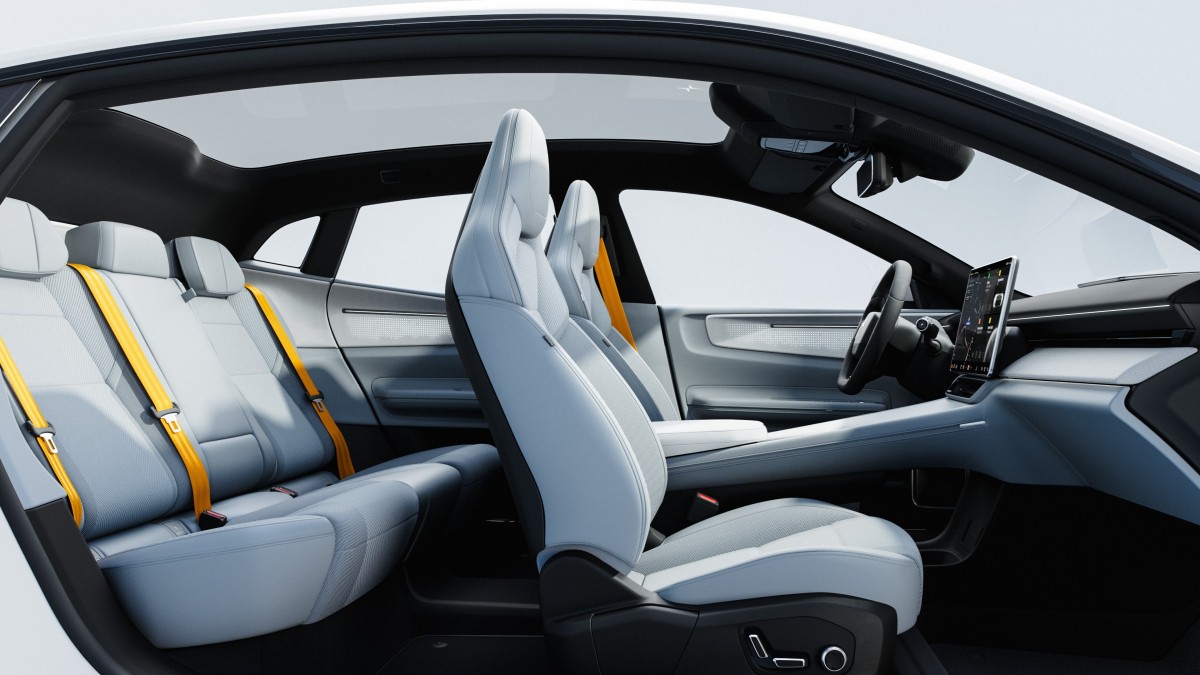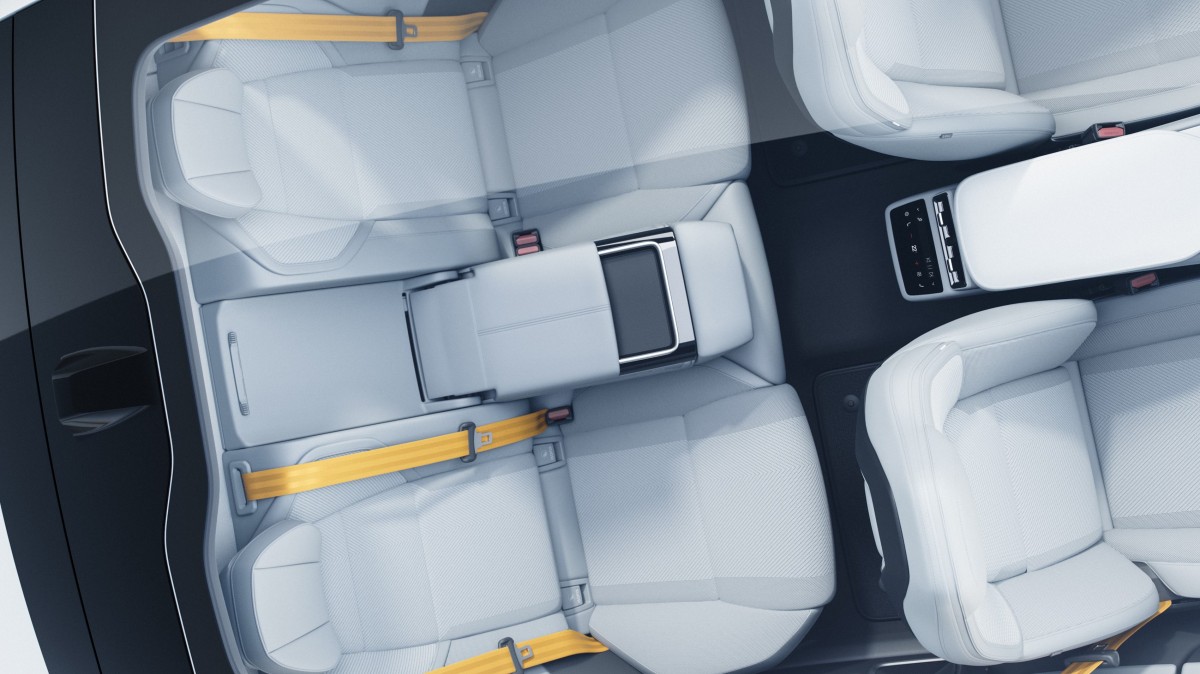Polestar 4 is a $60,000 SUV with 544hp and 600km range
Polestar is on a mission to change our perceptions of what a coupe is. It started with the Polestar 3 which is called an SUV but when you look at its dimensions, you realize it’s a wagon on stilts. The all-new Polestar 4 takes this approach even further - it’s nearly as long as the Polestar 3, but it’s even lower and the company calls it a Performance SUV Coupe.
Polestar is hell-bent on improving passenger comfort and that’s never a bad thing. It can be hard to achieve though in a coupe SUV, these cars are always a compromise between the sexy shape and interior room at the back. The company claims that the new Polestar 4 fixes that problem and “celebrates rear occupant comfort.”

How did the Polestar do it? Apparently by removing the rear window. We struggle to see how the window is keeping the rear room from getting bigger, but we'll tag along with this one. Turns out the real issue with having the window in the back is the frame of the vehicle - the rear cross brace has to sit right above the rear passengers’ heads to allow for the glass to be installed. If you remove the glass, you can push the cross brace further back, making more headroom without sacrificing the coupe lines. Clever Polestar!
To compensate for the lack of a rear window, Polestar 4 comes with a larger glass roof that stretches behind the rear passengers, flooding the interior with light and making the rear window redundant. The company cleverly used lighter colors as well and the trim behind the rear seats rises and runs above the headrests where it meets with the black roof liner. The rear seats feel like a comfy cocoon and nobody even asks about the missing window.

To compensate for the loss of visibility the car is equipped with a high-resolution rear-view camera and the rear-view mirror is now a high-definition screen. The driver has a much wider field of view and as a result, the lack of a window is turned into an advantage. Yet another clever move by Polestar.
So, the Polestar 4 is an SUV coupe that can actually work. But aren’t coupe cars designed to be sporty? Well, the company addressed that with a 544hp dual-motor powertrain that delivers 686Nm of torque. That’s enough to propel this 4.84-meter-long SUV to 100 km/h from a standstill in just 3.8 seconds and making it the fastest Polestar vehicle yet.

If that’s too fast and you’d prefer something more leisurely, there is a tamer version coming as well. Fitted with a single electric motor powering just the rear wheels, it offers 272hp (200kW) and 343Nm of torque. It is still spritely with the 0 to 100 km/h taking 7.4 seconds, but where it wins is its longer driving range. Polestar predicts it will be capable of 600km (372mi) on the WLTP cycle and up to 300 miles under the EPA rules.
Since both versions come with the new 102kWh NMC battery pack supplied by CATL (94kWh usable), it’s important to note that the Performance version does not come with much lower range. The estimates are 560km (350mi) WLTP and 270 miles EPA - that’s really good for a 2.2 metric ton vehicle with 544hp.

Polestar 4 then is not just a pretty coupe SUV. It is actually usable, it has good range, it has plenty of power, it has room for 5 people and yet it manages to stow away 500 liters of cargo in the back. Add to it a 15-liter frunk for cables and other loose items and we have a compelling package.
Then there is the cherry on top of the cake - the price. No, Polestar 4 is not a bargain, but at a suggested price of $60,000, it sounds attractive. It won’t qualify for the $7,500 EV tax credit in the US, but it still remains attractive - as long as Polestar makes the price stick.

For $60,000 (€60,000 in Europe) we are getting a lot of a car with a lot of tech. The entire Google suite of services is preinstalled with Maps, Assistant, and Google Play on hand. Audio comes courtesy of Harman Kardon and its 12-speaker 1,400 Watt setup. Opt for Nappa seats and you get 4 extra speakers in the headrests.
12 cameras, one radar, and another 12 ultrasonic sensors pay attention at all times and monitor safety. Even the driver’s attention is being tracked and in case of trouble, the Polestar 4 can safely take over. A new HUD tech displays all the info on the windshield and adapts to the environment - when the car detects snow on the road, the display changes its color to yellow to remain visible. Clever stuff again. Combine that with the Pilot Pack for advanced ADAS and we have a truly compelling electric vehicle that’s unlike anything else on the road. And we already forgot about the missing window.





Facebook
Twitter
Instagram
RSS
Settings
Log in I forgot my password Sign up